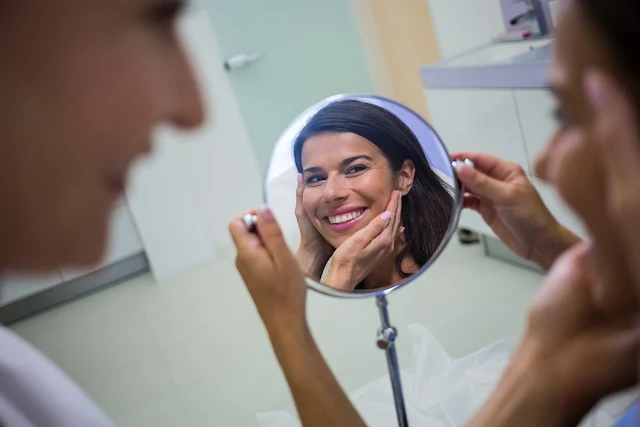The Psychology Behind Cosmetic Procedures
Based on the study conducted by The American Society of Plastic Surgeons, cosmetic surgery interventions have increased in the past five years in the USA alone. Both men and women decide to undergo at least one cosmetic surgery procedure and the reasons vary. Exposure to media and low self-esteem are among the prevailing factors, but the benefits are hard to negate and ignore, as well.
Since plastic surgery deals with correcting injuries and deformities, cosmetic surgery has always been perceived as a sign of vanity. The psychology behind cosmetic procedures is far more complicated than believed and it also has to include the outcome and how it will affect a person's life.
Talking about procedures
According to the data, breast augmentation, liposuction, and nose reshaping are the most sought-after procedures of 2018. However, small interventions like Botox injections, dermal fillers, and chemical peels are also on the rise. Even microblading is a cosmetic procedure, even though it is performed by surgeons or medically educated personnel.Due to available nonsurgical options, the number of surgical facial procedures is getting lower. This could also happen with liposuction since there are alternative methods of losing body fat, which uses state-of-the-art technology and devices. Nonetheless, some surgical interventions are irreplaceable and will likely only get more sophisticated as time goes by and not forgone.
The media impact
One can’t discuss the psychology behind cosmetic procedures without mentioning the media and their influence. The ones promoting cosmetic surgery, whether consciously or not, are mostly celebrities like Cardi B, Nicole Kidman, and Chrissy Teigen. Only days ago, Chrissy Teigen publicly documented via social media the procedure of injecting Botox into her armpits to stop sweating. This type of publicity puts the procedures on the spot and often divides the public on their necessity and benefits.Reality TV, like Keeping Up with the Kardashians, promotes cosmetic surgery, showing how it helped these women get the spotlight and even become billionaires. Alternatively, reality shows like Botched provide medical perspective into surgical procedures and allow us to hear patient stories. So, while some will argue that the media is to blame for so many cosmetic procedures, it is fair to acknowledge that it also made people aware of the risks, benefits and negative outcomes as well.

The ongoing discussion on the necessity
It would be a shame not to use scientific advancements to our advantage. After all, the cosmetics industry profits from promises to consumers that its products will slow down the aging process and remove imperfections. But no matter how much the safety and efficacy of cosmetic procedures have improved and will continue to do so in the future, there will always be naysayers. Some will have valid points regarding the necessity and how it affects the patient's health. While others will "throw stones" and shame people for even thinking of having a minor change.The fact is that having cosmetic procedures has become a trend that will hardly go away. The life-changing effect they have are undeniable, but whether it’s positive or negative is what matters here. People undergo these procedures to better their lives, which they wouldn’t have to do at all if society wasn’t based on valuing visual features in the first place. So in a way, it has the responsibility to create a nurturing environment for all, and not place blame on the individuals who only want to feel accepted.
Avoiding botched results
Every procedure on the body, especially the surgical one, carries certain risks and possibilities to fail. While the results depend on the patient and the severity of the procedure, they are also greatly affected by the person performing it. Before you undergo a procedure, you will have to do a series of tests and medical checks to see if you are suited for desired intervention. Always look for medical institutions like Panthea Clinics who have experts with years of experience and satisfied patients. With good research on the procedure and reputation of professionals, you will most likely get the best and desired results.Also, your body needs to recover from these procedures. Patients have a strong desire to show off their new features, which can slow down the recovery process and even create problems. Namely, breast implants can change position and destroy the shape if you start your fitness plan too early. So, being a good and responsible patient is as important as choosing the right surgeon for the operation.
The reasons behind the decision
The “why” behind the cosmetic procedure depends on the person and circumstances. On one side, social media is full of perfectly looking people who appear happy and full of life. The accent is always placed on visual appeal thus creating the belief that achievements come from the physical appearance or heightening its importance for happiness. And from that desire to be happy, accepted, loved and valued comes the need to change your features to fit the perceived model for a satisfied and fulfilled life.However, the reasons that branched from that one above are the ones that worry about the medical community and the public. Namely, having cosmetic procedures can turn into an addiction like smoking, alcoholism or gambling. The person will change one feature and then continue to find flaws with a burning need to correct them surgically no matter the health or financial cost. The results are troubling visually and seriously endanger the patient's health and well-being.
Sometimes, you can’t have what you want.
Another essential aspect that can significantly impact the results is the patient's expectations regarding their procedure. For example, you may want Liv Tyler’s mouth or Charlize Theron’s chicks, but they simply may not fit your natural face shape. From a psychological aspect, this is a complex part of the decision-making process when it comes to cosmetic surgery. Patient's expectations sometimes can't be met for several reasons, some of which may be safety and efficacy of the procedure.But that doesn't stop patients from having surgeons to do cosmetic surgery. For patients, low self-esteem and dissatisfaction with their lives serve as a motive. Unfortunately, for surgeons, it's the monetary aspect of the procedure and sometimes even the challenge that seriously crosses the ethical line. This is when therapy can help people understand where their insecurities come from and that expectations may be unrealistic and even carry more downsides than benefits.
Final thoughts
The psychology behind cosmetic procedures is neither good nor bad. It’s a state of mind that should be carefully examined to help individuals improve and not impair their lives. Responsible and reliable cosmetic experts put the health of the patient first, providing advice and consultations. However, society should also be less critical and more understanding of this popular trend and its followers.Related post

